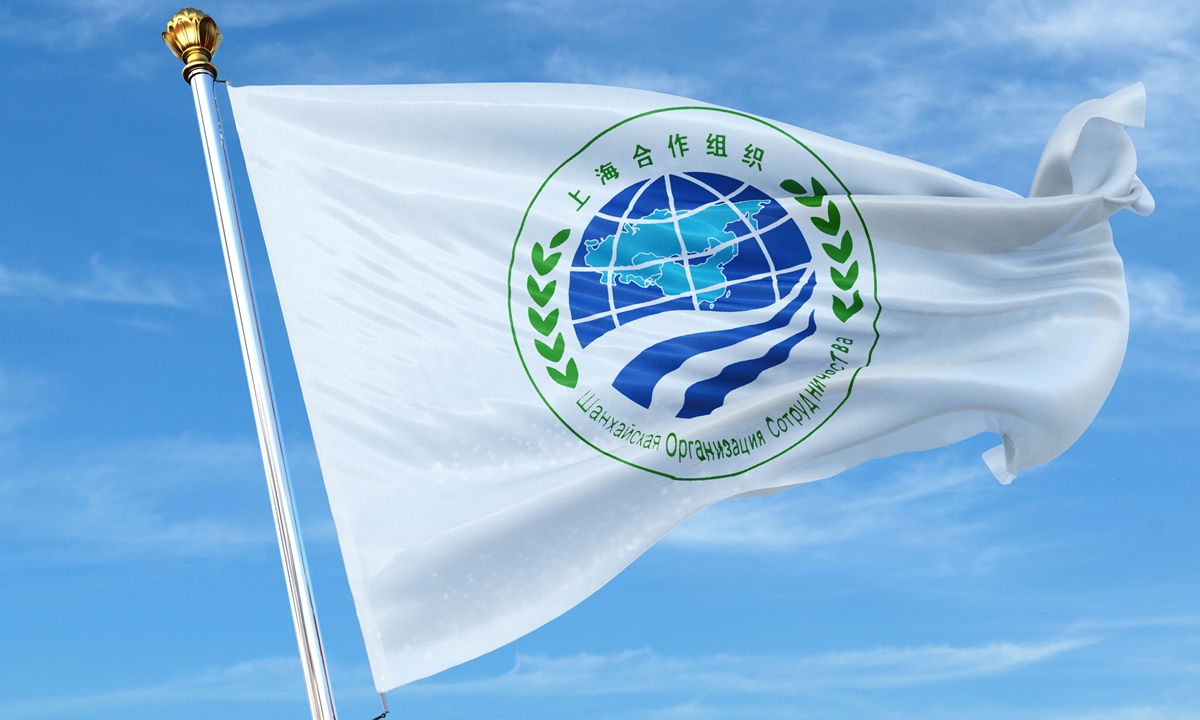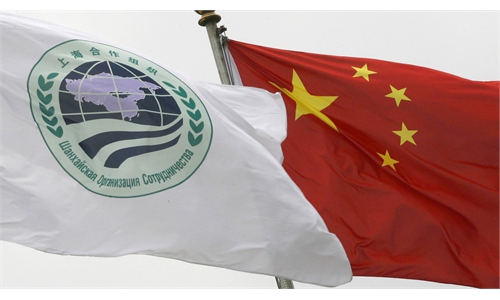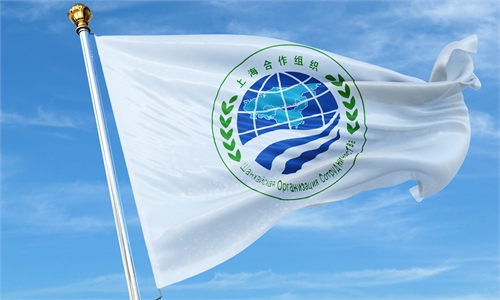
Shanghai Cooperation Organization Photo: VCG
The upcoming SCO summit in Uzbekistan on September 15-16 is a significant international event that will attract the public attention in many countries. 15 heads of state and leaders of 10 organizations working with the SCO are to take part in the summit.There are several reasons why the summit will hit headlines of mass media around the world. The first one is timing. The world faces multiple global crises caused by the unwise Western policy of sanctions and there is an urgent necessity to find ways how to deal with unfolding turmoil. Another reason is the fact that the SCO is the biggest non-Western organization in terms of geographic scope and population that can make a crucial contribution into resolving problems. It is advisable to keep in mind that the SCO is comprised of more than 3 billion, which is about half of the world's population.
Unlike Western entities such as NATO or G7, the SCO is an inclusive and open organization. The SCO does not pursue a policy of deterrence and does not have something similar to article V of NATO Charter. It does not have an intention for power projection. Thus, the organization is not aggressive and does not threaten anybody. The SCO promotes wide cooperation and security based on common interests and international law.
Therefore, countries neighboring the SCO do not feel threatened when more countries join the organization. Willingness of more countries to join as members indicates that the organization is becoming more and more attractive and is growing.
The current international situation is depicted by the collective West as a "fight between democracy and autocracy." This kind of assessment is too simplistic and does not reflect the complexity of our world. World processes are multi-faceted, multilayered and non-linear in their development. The non-Western world is so complex and diverse that it just cannot fit into the paradigm "democracy vs autocracy." The SCO is a vivid example of diversity of the international community, where different countries find common ground for mutually beneficial cooperation.
Today the West through its entities like G7, the EU and NATO make attempts to replace the rule of law by Western rules that were adopted without non-Western countries and are imposed on the world community. Russia found itself under heavy pressure from the sanctions introduced by the West. The West goes out of its way to isolate Russia from the rest of the world. However, as former Italian Prime-Minister Berlusconi stated, the West isolated Russia but at the same time, has also isolated itself from the rest of the world. China is also under fire from the West who is pursuing a policy of the containment of China. For a long time Western countries were proud of the rule of law. Now property, finances of legal entities and physical persons have been confiscated by applying illegal means. Private property is not sacred anymore. Such policy sets a negative example to non-Western countries that illegal decisions can be made for political purposefulness.
As a result, these actions bring SCO members closer to each other and strengthen the organization. Members of the organization resist pressure and intimidation coming from Western opponents. Western policy widens the split between nations and the world faces further fragmentation. We can forget about globalization as it had evolved over past several decades. Besides, the potential for growing conflict is increasing. At the upcoming summit, the SCO leaders will make it evident that the split between West and non-Western world will give a push to further transformation of the organization. The world community will make it sure that the SCO is an alternative and powerful tool to provide regional security and to maintain stability.
Along with that there will also be regional political, security and economic issues on the agenda of the summit. Obviously, the West has economic interdependence into a tool for coercion, rather than cooperation. In the West, economic dependence is regarded as an opportunity to impose its will. The SCO is aimed at further economic development amongst its members. The unfolding economic crisis makes it urgent for the SCO to beef up its economic cooperation. 30 agreements are expected to be signed at the summit. One of the ways to decrease economic dependence on the West is to limit the use of the euro and US dollars in payments, as well as Western payment systems and to increase the use of national currencies in trade instead. Under the conditions of sanctions it is indispensable to set up reliable SCO banking mechanisms as an alternative to IMF and World Bank. It will provide more stable economic development. The SCO summit is sure to be a clear evidence that evolving multipolar world has a non-Western strong pillar that the world community can rely on.
The author is deputy head of the International and National Security Department, Diplomatic Academy, Moscow. opinion@globaltimes.com.cn


